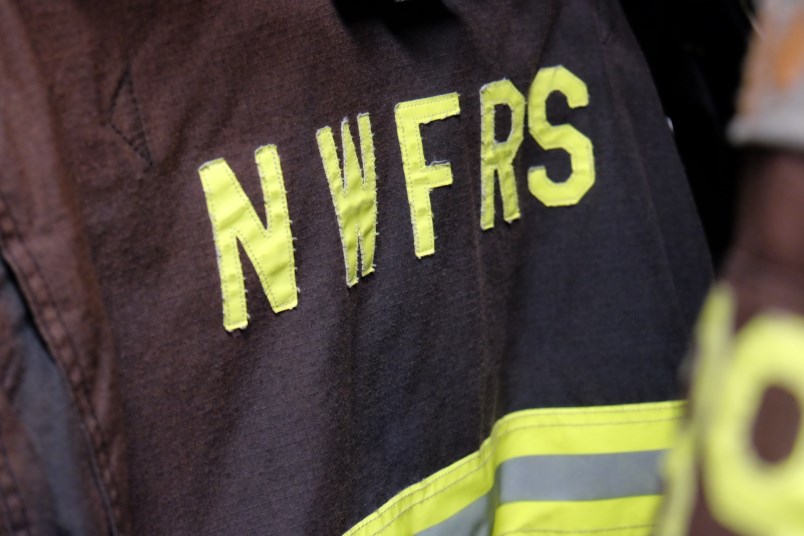New West firefighters have to battle fires as part of their employment – but they’re grateful they no longer have to fight to prove some cancers are related to their jobs.
The province has announced it’s amending the Firefighters' Occupational Disease Regulation under the Workers Compensation Act (WCA) by adding three cancers to the existing list of 13 that firefighters are at risk of developing. If a firefighter develops one of the listed cancers after a certain period of employment, it is presumed that the cancer arose from their employment.
Shane Poole, president of the New Westminster firefighters’ union, said the decision is “fantastic” news for all firefighters in B.C. He thanked the provincial government for its hard work in advocating to WorkSafeBC to get these cancer presumptions in place.
“There are so many chemicals in smoke,” he told the Record. “When we go into house fires, car fires, dumpster fires, all that sort of stuff. That is what is killing firefighters.”
In September 2020, New Westminster firefighters spent days putting out the Westminster Pier Park fire.
“The Pier Park fire – burning creosote, that’s as bad as it gets right there,” Poole said. “Horrible, horrible stuff.”
At fire scenes and upon returning to the fire halls, firefighters have to decontaminate (de-con) their turnout gear to prevent exposure to chemicals, Poole said.
“Everything we own is basically petroleum based or plastic of some sort. When it burns, the chemicals that come off it are deadly. There is no way around it,” he said. “We really push de-conning ourselves. We will de-con ourselves on scene – hose ourselves down to get all the chemicals off our gear. Back to the hall, wash all our gear, clean turnout gear and all that kind of stuff because the chemicals will off-gas for hours after, and that’s something we will be around and absorbing into your skin and that sort of thing.”
Poole said the BC Professional Fire Fighters’ Association urged firefighters across the province to talk to their MLAs about the need to amend the WorkSafe Act to have more cancers deemed presumptive so they can get tested and be covered if they get sick on the job.
According to the province, the changes mean B.C. firefighters will soon have easier access to workers' compensation benefits and support services in recognition of their higher risk of developing work-related cancers.
"It goes without saying that firefighters face a lot of hazards in their work," Harry Bains, Minister of Labour, said in a news release. "When it comes to the workers' compensation system, they shouldn't have to prove that certain long-term illnesses are work-related in order to access supports. B.C.'s firefighters have been asking for this protection, and I am proud to support these people who do so much to keep British Columbians safe."
"Big step forward"
As part of the changes, ovarian, cervical and penile cancers are being added to the list of work-related cancers. In addition, firefighters won't have to work as long before they become eligible for coverage for testicular, colorectal and esophageal cancers, which are already covered.
“The other part of the new legislation is the acceptance of cervical cancer,” Poole noted. “This also is a big step forward in protecting our female firefighters, who face the same dangers.”
In 2005, the province first recognized certain cancers as occupational diseases associated with long-term employment as a firefighter. With these changes to the WCA, 16 cancers are now presumed to be associated with the profession.
“We still lag behind some of the other provinces and territories in Canada – there are some that are up to 21 presumptive cancers,” Poole said. “Our goal is to make it the same across Canada for everyone.”
To access certain workers' compensation benefits related to occupation disease, a firefighter must have worked a minimum amount of time. Both professional firefighters and approximately 10,000 volunteer firefighters in B.C. have access to workers' compensation related to cancer and other occupational diseases.
Poole said some New West firefighters have died of cancer within a few years of their retirements.
“They haven’t necessarily been considered presumptive so that’s why we are trying to get the education out there to WorkSafe and the provincial government, that sort of thing, so we can get them tested,” he said. “Cancer screening is another big one we are really trying to get done for all of our members.”
Follow Theresa McManus on Twitter @TheresaMcManus
Email tmcmanus@newwestrecord.ca



